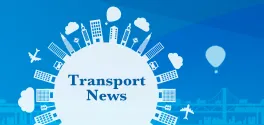Chair's Message - September 2023
It’s been a relatively quiet period since my last report, other than the series of catastrophic extreme weather events we’ve seen round the world. All the evidence suggests the predicted impacts of the Climate Emergency are happening, only much sooner than scientists had anticipated. This makes the theme of this year’s Transport Planning Day on 13 November (“Planning and Delivering a rapid and equitable transition to a decarbonised transport system”) all the more relevant.
Board Engagement
We are holding TPS Board strategy day on Thursday 12 October. The last time the TPS Board had a strategy planning day was in May 2020, so we felt it was time to step back and think about our long-term priorities. We will discuss where we’d like to be in 5 years’ time in terms of policy development, skills, events and engagement and what this implies in terms of membership, funding, governance and the TPS operating model.
We are currently in the process of analysing the members survey, which will give us really useful data about what the TPS membership would like to see from the Society. If you have any thoughts on where we should be aiming to get to in 5 years’ time, please send them into opsdirector@tps.org.uk.
Events and Engagement
TPS Board and Edinburgh event
We held the September TPS Board meeting in Edinburgh, hosted by Stantec in their offices. It was a very useful meeting and was followed by an excellent event featuring Phil McCluskey and Stephen Cragg from Transport Scotland, TPS Board member Daisy Narayanan from Edinburgh City Council, and Sue Hilder from the Loch Lomond National Park. The debate was on “Meeting the challenge of Scotland’s Transport Strategy”, in particular the commitment to cut car kms by 20% by 2030 (which we need to do UK-wide to have any chance of meeting our decarbonisation goals). It was a fascinating debate, covering national vs city -level and urban vs rural issues and focusing as much on the politics as the practicalities of delivering the km reduction target.
I spent the next day being shown round Edinburgh by Daisy. The City Council are doing some great work to improve the public realm and reprioritise streetspace to give higher priority to walking, cycling and city life.
The Buchanan Report at 60
We held another great event on 12 September, this time a webinar with CIHT and the Academy of Urbanism to mark the 60th anniversary of “Traffic in Towns”, written by Colin Buchanan for the Ministry of Transport in 1963. We had a great panel of speakers – Professor Peter Jones from UCL (who had the idea for the webinar); Atholl Noon and Andreas Markides from Markides Associates; Deborah Paton from Glasgow City Council; and Isabel Dedring, global transport lead for Arup. The general consensus was that the report was remarkably far-sighted, accurately predicting the rise in car ownership and use and the challenges of managing rising traffic levels in towns and cities. The panel were less united on whether some of the proposed remedies, with a heavy focus on traffic infrastructure, have proved helpful in the six decades since the report was published.
Transport Planning Day 2023 – 13 November 2023
Planning continues for TPD2023. The TPD steering group has continued to meet and the programme is shaping up nicely. I’m delighted to report that Buro Happold have come on Board as the TPD Platinum Sponsor; ioki has signed up as Gold Sponsors; Stantec has signed up as Silver sponsor; and Charge Surveys has signed up as SME sponsor. We’re developing a really exciting programme of supporting events, including:
-Optibus and Ioki webinar: Combining fixed line and DRT into a single optimised network 25 Sep 2023 14:00 to 15:00
- TRSE 101 a matter of justice 11 Oct 2023 12:30 to 14:00
- Grassroots and community solutions to TRSE 25 Oct 2023 12:30 to 14:00
Policy Developments
Letter to the Prime Minister on local environmental improvements
I wrote to the Prime Minister on 7 August on behalf of the TPS to state our support for local highway improvements (such as LTNs) designed to encourage walking and cycling. Such improvements have significant benefits around air quality, road safety and mode shift. The letter was in response to press reports that the Prime Minister regards such investments as “anti-car” and his consequent commissioning of a review of LTNs and other similar measures. Our letter argued that schemes like LTNs support a number of the Government’s strategic priorities such as tackling the Cost of Living Crisis, decarbonisation, local economic regeneration and cutting NHS waiting lists (by improving public health). The letter got coverage in the trade press, including Local Transport Today.













